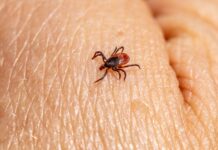We are truly living in an information era. Gone are the days that scientists can go out into the field, collect numbers in a notebook, and return to the lab to analyze the results with a pencil by hand. We have massive computing power that allows us to look at huge amounts of data and distill them down to something more meaningful and tangible. Behind modern experiments is a lot of math.
Mark Daley, professor of computer science and biology and member of the Brain and Mind Institute at Western University, is using mathematics as a tool to understand some of the most complex problems around – including the human brain and mental health.
“One in three Canadians at some point in their life will be clinically diagnosed with some sort of mental illness; that’s a huge portion of our population,” Daley explains, “If you know more than two other people, chances are you are going to know someone who needs some kind of help. And so where I draw my inspiration from is that this is hugely impactful to society, to people’s quality of life.”
Beyond mental health, Daley is also working on evaluating medical imaging and brain function in neonatal babies. He credits breakthroughs in his work to collaborations across many disciplines, including computer scientists and neurologists, who are marching together towards common goals.




































